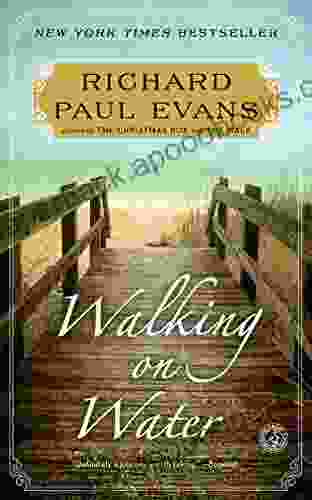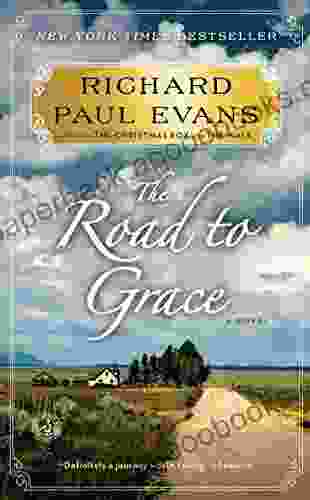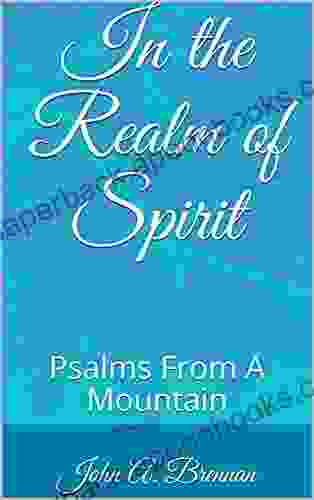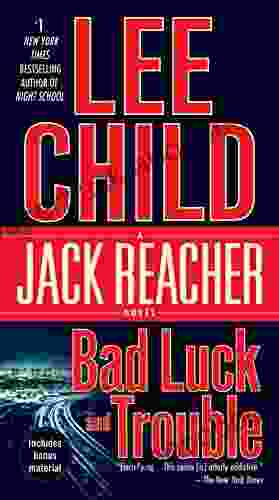Tracking the Spiritual Roots of Pop from Plato to Motown

Pop music is often seen as a purely secular phenomenon, but a closer look reveals that it has deep spiritual roots. These roots can be traced back to ancient Greek philosophy, which saw music as a powerful force that could both uplift and inspire.
5 out of 5
| Language | : | English |
| File size | : | 1608 KB |
| Text-to-Speech | : | Enabled |
| Screen Reader | : | Supported |
| Enhanced typesetting | : | Enabled |
| Word Wise | : | Enabled |
| Print length | : | 266 pages |
Plato, in particular, believed that music could purify the soul and help people to connect with the divine. He wrote in his Republic that "music has the power to form character" and that it should be used to "educate the young and to inspire them to virtue."
The influence of Greek philosophy on music can be seen in the development of Christian music, which often used music to express religious themes. In the Middle Ages, music was an essential part of religious ceremonies and was often used to teach people about the Bible.
The Renaissance saw a renewed interest in classical music, and this led to the development of a new style of pop music called madrigals. Madrigals were secular songs that often dealt with themes of love and loss. They were popular throughout Europe and were often performed at courtly gatherings.
In the 18th century, the development of the piano and the guitar led to the emergence of a new style of pop music called ballads. Ballads were often sentimental songs that told stories of love and loss. They were popular in both Europe and America and were often performed in taverns and at home gatherings.
In the 19th century, the development of the phonograph led to the emergence of a new style of pop music called ragtime. Ragtime was a syncopated style of music that was often played on the piano. It was popular in America and Europe and was often used in vaudeville shows.
In the early 20th century, the development of jazz led to the emergence of a new style of pop music called rhythm and blues. Rhythm and blues was a blues-based style of music that was often played on the guitar, bass, and drums. It was popular in America and Europe and was often used in dance clubs and at home gatherings.
In the 1950s, the development of rock and roll led to the emergence of a new style of pop music called soul. Soul was a gospel-based style of music that was often played on the piano, bass, and drums. It was popular in America and Europe and was often used in dance clubs and at home gatherings.
In the 1960s, the development of psychedelic rock led to the emergence of a new style of pop music called folk rock. Folk rock was a folk-based style of music that was often played on the guitar, bass, and drums. It was popular in America and Europe and was often used in folk clubs and at home gatherings.
In the 1970s, the development of disco led to the emergence of a new style of pop music called dance music. Dance music was a dance-based style of music that was often played on the synthesizer, bass, and drums. It was popular in America and Europe and was often used in dance clubs and at home gatherings.
In the 1980s, the development of hip hop led to the emergence of a new style of pop music called rap. Rap was a rap-based style of music that was often played on the synthesizer, bass, and drums. It was popular in America and Europe and was often used in dance clubs and at home gatherings.
In the 1990s, the development of grunge led to the emergence of a new style of pop music called alternative rock. Alternative rock was a rock-based style of music that was often played on the guitar, bass, and drums. It was popular in America and Europe and was often used in alternative rock clubs and at home gatherings.
In the 2000s, the development of pop punk led to the emergence of a new style of pop music called emo. Emo was a punk-based style of music that was often played on the guitar, bass, and drums. It was popular in America and Europe and was often used in emo clubs and at home gatherings.
Today, pop music is a global phenomenon that is enjoyed by people of all ages and cultures. It is a powerful force that can move people to dance, sing, and cry. It can also be used to express our deepest thoughts and feelings. The spiritual roots of pop music are deep and varied, and they continue to inspire and influence artists today.
Pop music is a complex and ever-evolving genre that has been shaped by a variety of spiritual influences over the centuries. From its origins in ancient Greek philosophy to its modern manifestations in Motown and beyond, pop music has always been a powerful force that can uplift and inspire.
If you are interested in learning more
5 out of 5
| Language | : | English |
| File size | : | 1608 KB |
| Text-to-Speech | : | Enabled |
| Screen Reader | : | Supported |
| Enhanced typesetting | : | Enabled |
| Word Wise | : | Enabled |
| Print length | : | 266 pages |
Do you want to contribute by writing guest posts on this blog?
Please contact us and send us a resume of previous articles that you have written.
 Book
Book Novel
Novel Page
Page Chapter
Chapter Text
Text Story
Story Genre
Genre Reader
Reader Library
Library Paperback
Paperback E-book
E-book Magazine
Magazine Newspaper
Newspaper Paragraph
Paragraph Sentence
Sentence Bookmark
Bookmark Shelf
Shelf Glossary
Glossary Bibliography
Bibliography Foreword
Foreword Preface
Preface Synopsis
Synopsis Annotation
Annotation Footnote
Footnote Manuscript
Manuscript Scroll
Scroll Codex
Codex Tome
Tome Bestseller
Bestseller Classics
Classics Library card
Library card Narrative
Narrative Biography
Biography Autobiography
Autobiography Memoir
Memoir Reference
Reference Encyclopedia
Encyclopedia Michael Foley
Michael Foley Joan Ford
Joan Ford Ron Louis
Ron Louis Sincerely Louise
Sincerely Louise Jessica Peck
Jessica Peck Jerry Doyle
Jerry Doyle Karen Ranney
Karen Ranney Jennifer Lehr
Jennifer Lehr Jeffrey H Jackson
Jeffrey H Jackson Jean Plaidy
Jean Plaidy Jkbc Parthiban
Jkbc Parthiban Nicholas Humphrey
Nicholas Humphrey Ludwig G Kempe
Ludwig G Kempe Rory Stewart
Rory Stewart Joey Carney
Joey Carney Raj Kumar
Raj Kumar Michelle Warren
Michelle Warren Jodi Picoult
Jodi Picoult Jim Emerton
Jim Emerton Russell Lunsford
Russell Lunsford
Light bulbAdvertise smarter! Our strategic ad space ensures maximum exposure. Reserve your spot today!

 Edward BellFormal Methods for Industrial Critical Systems: An Essential Guide to Safety,...
Edward BellFormal Methods for Industrial Critical Systems: An Essential Guide to Safety,... Haruki MurakamiFollow ·12.7k
Haruki MurakamiFollow ·12.7k Patrick RothfussFollow ·16.2k
Patrick RothfussFollow ·16.2k Juan RulfoFollow ·19.5k
Juan RulfoFollow ·19.5k Salman RushdieFollow ·3k
Salman RushdieFollow ·3k Dwight BlairFollow ·5.1k
Dwight BlairFollow ·5.1k Harry CookFollow ·13.5k
Harry CookFollow ·13.5k Aleksandr PushkinFollow ·11.4k
Aleksandr PushkinFollow ·11.4k Cason CoxFollow ·7.3k
Cason CoxFollow ·7.3k

 Preston Simmons
Preston SimmonsEmbark on a Literary Odyssey with "Walking on Water": A...
Prepare to be swept...

 Ernesto Sabato
Ernesto SabatoUnlocking Policy Analysis: Dive into the Intricacies of...
: The Realm of Policy...

 Forrest Reed
Forrest ReedThe Road to Grace Walk: A Journey of Spiritual Growth and...
In the tapestry of life, we...

 Evan Simmons
Evan SimmonsTip Neill and the Democratic Century: A Political Odyssey...
The Rise of a Political Giant In the...

 Mark Mitchell
Mark MitchellUnwrap the Magic: A Review of Christmas Memory by Richard...
As the cold winter months draw near, and...

 Percy Bysshe Shelley
Percy Bysshe ShelleyBeyond the Veil: Delve into the Realm of Spirit with In...
Unveiling the Mysteries of the Unseen...
5 out of 5
| Language | : | English |
| File size | : | 1608 KB |
| Text-to-Speech | : | Enabled |
| Screen Reader | : | Supported |
| Enhanced typesetting | : | Enabled |
| Word Wise | : | Enabled |
| Print length | : | 266 pages |









